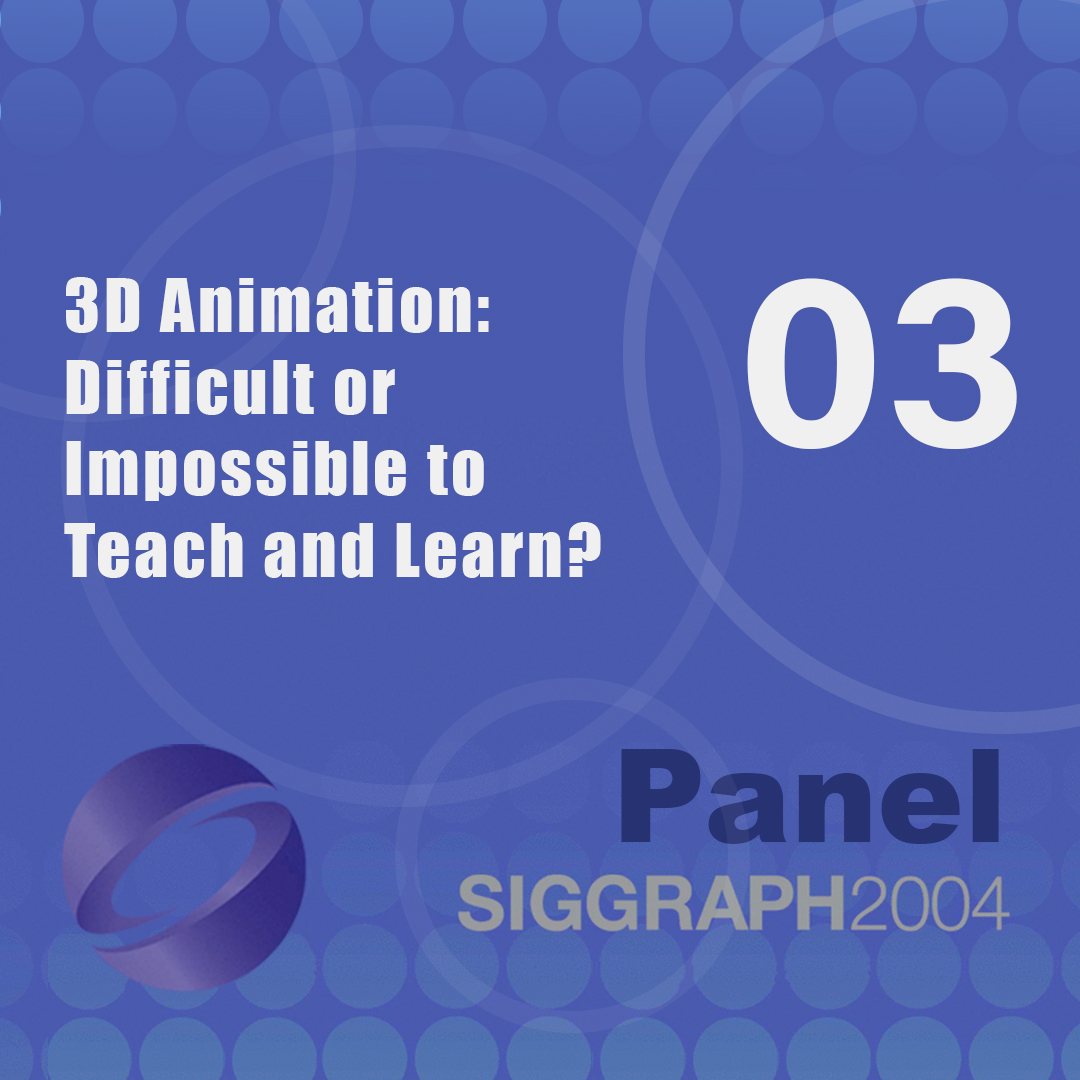“3D Animation: Difficult or Impossible to Teach and Learn?” by Jagger, McCambell and Slagel
Conference:
Type(s):
Title:
- 3D Animation: Difficult or Impossible to Teach and Learn?
Presenter(s)/Author(s):
Moderator(s):
Entry Number:
- 03
Abstract:
Teaching the skills needed to animate in current 3D software is difficult. Learning it may be more so. Being the only totally digital art form, it does not fall neatly into computer science or art. It does share an abundance of the complexities and consternations of both. Current applications can feel like a hodge-podge of ideas from drafting, particle and Newtonian physics, geometry, and puppet animation, forcing the student to face the most complex interface in computerdom. The programs get harder to learn as you read this.?
This panel is for anyone who has ever been frustrated by 3D software, which probably includes just about anybody who has ever tried one of these programs. The panelists attempt to determine the nature of current educational practice in 3D animation. They examine the situation from three viewpoints (user, creator, and educator) and search for a consensus on what works and what doesn’t. Multiple insights will help us understand where we are in the evolution of 3D education and what directions to explore in the future.?
Particular emphasis is placed on the existing model: coursework, demo projects, internships, employment, and continuing development of software. What are the negative and positive aspects of this situation? How does this compare to other areas (film and video, photography) of digital imagery training? Who is getting what they need out of the situation? Should education be application-specific? Should it be delivered in a trade school or a liberal arts college??
Panelists were selected for their positions in the infrastructure of 3D training: educator, employer, or software author. This may be the first time representatives from all these groups have gathered to discuss how people learn to produce the virtual worlds they create.?





